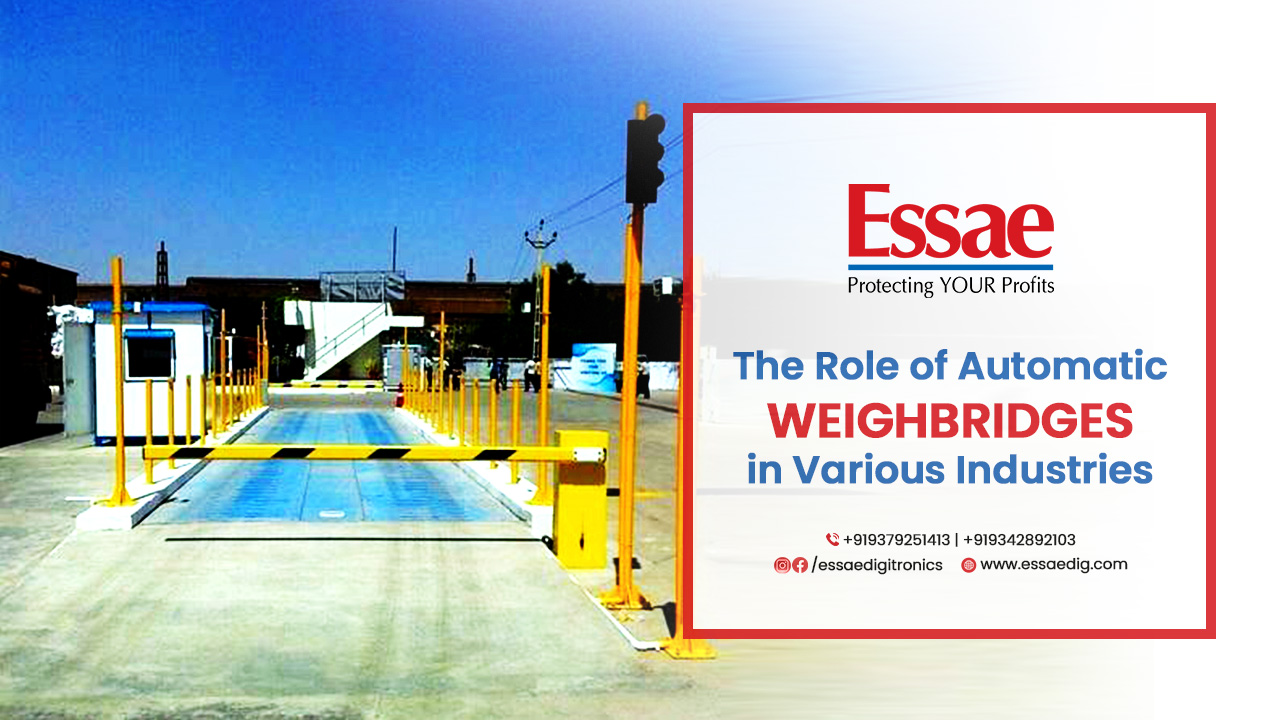
The Role of Automatic Weighbridges in Various Industries

- June 2024
- The Role of Automatic Weighbridges in Various Industries
Automation is entering every aspect of the industry, and the weighbridge industry is no different in this respect. Automation helps reduce human labour, efficiency, and productivity in an organization.
A manual weighbridge requires an operator and support staff to direct the vehicles. Data collection and transmitting mistakes are common with manual methods. Consequently, many businesses are using automatic weighbridge systems in order to streamline processes and improve productivity.
In an automated weighbridge, boom barriers and traffic lights control the flow of vehicles into the bridge and ensure that a new vehicle is allowed only after the existing one leaves the weighing station. An RFID card is used to track a vehicle, and sensors help the driver place the truck properly. It eliminates the paperwork and records data for transmission and storage in ERP systems of businesses.
Let’s examine how automated weighbridges function in various industries:
1. Logistics Industry: The logistics industry has to manage a vehicle fleet for various locations. Automatic weighbridges reduce queues, which helps in faster fleet movement. and boost overall operational efficiency. It promotes in the optimization of loads and better logistics planning. Weighing precision and accuracy support client trust and compliance with regulations.
2. Construction Industry: The construction industry uses materials such as concrete, steel, and aggregates. These are transported from different locations and have to be loaded into trucks within legal limits. Automatic weighbridges allow vehicles to travel faster after being weighed, manage inventories, and assure project completion on time. Billings are precise in terms of weight, enabling businesses to be paid according to material deliveries.
3. Agriculture Industry: Automated weighbridges give accurate measures of harvested crops. It implies farmers are paid according to crop weight. Lastly, goods used in agriculture, such as seeds, fertilisers, and manure, may be correctly weighed, helping with inventory management and profitability.
4. Manufacturing Industry: This sector must deal with an extensive variety of raw materials and products. Precision weighing helps with accounting, inventory management, and reducing the risk of overloading and damaging vehicles. It also improves manufacturing efficiency by ensuring that only the necessary amount of material is used. It minimizes costs while increasing efficiency and productivity.
5. Waste Management Industry: Automated weighbridge solutions help measure the weight of waste goods gathered from various locations. Companies can bill customers based on the accurate weighing of disposed resources, which leads to fair trade. It helps waste management companies comply with transportation laws.
6. Mining Industry: Mining operations are continuous processes that require automated weighbridges to weigh truck loads. It minimises waiting time for trucks and captures accurate weight data, leading to increased productivity. Automatic weighbridges also reduce labor costs.
In general, several features of the automated weighbridges, such as traffic flow management, instant identification of vehicles with RFID tags, accuracy in data with time and data stamping, and quick transmission and data storage, help to prevent theft and pilferage of goods across various industries. The driver-friendly interface also helps drivers utilise the facility to the benefit of the enterprise.
Essae Digitronics is India’s leading manufacturer of weighbridges in steel and concrete for various applications. It also provides automated weighbridge solutions that can improve the productivity of the enterprise. With over 16,000 installations and satisfied customers, Essae Digitronics is well poised to further serve the industry with reliable and robust weighing solutions.




